 Constriction at Green Gulch Farm / Jed Sullivan Constriction at Green Gulch Farm / Jed Sullivan I went to a writing workshop at Green Gulch Farm, a Buddhist practice center offering training in Zen meditation and what it terms “ordinary work.” It is on Shoreline Highway almost to Muir Beach. Sixteen participants hoping to “awaken and enlist the senses” chose on that overcast Saturday to do their work with Laura Deutsch whose Writing From the Senses had been recently published by Shambala Press.
For about two and a half hours of the morning I sat in the circle and suffered familiar self-aversion. I felt shut down. Dry. A fake. How can I call myself a writer? Writers have something to say. Laura tried to warm us up with prompts for seven-minute free-writes. When time was up, she tapped the singing bowl; we stopped writing and shared.
The first prompt dropped me deeper into depression: Your Sock Drawer! Believe it or not I scribbled an apology. I don’t have a sock drawer. Does everyone have a sock drawer? Is this one more failure on my part? I tell it like it is. I have no sock drawer and this reminds me of the socks I do have, where they are and what if I die and my sons have to rummage through the drawers, not necessarily looking for socks, but probably they will have to get rid of things. I did this with my sister when my mother died. But her drawers were preternaturally neat. At 96 Hannah didn’t wear socks, per se; she still had panty hose. The top drawer of my dresser with its scattering of socks and other things could be a challenge for my sons. I vow to go home from the workshop and immediately relocate a “not-sock item” I think might embarrass them if they lift a pile of black compression knee-highs and come upon it accidentally. Of course, doing a free-write, I can say exactly what that not-sock thing is and hope they will never decipher the free-write if I haven’t destroyed it by then. At the sound of the singing bowl, I don’t offer to read what I have written, mostly because I wrote in such a hurry, much of it is illegible.
I set the lunch break as the time when I would decide whether or not to eat and run. But in the dining room, a woman I thought I recognized recognizes me as “the funny, and inspiring” (her words) facilitator of weight-watcher meetings she once attended. She was generous with her recollections of having learned from me, of admiring my “teaching.” The warmth of her appreciation unfreezes my heart. Maybe I did have something to say and it was okay to sit among writers, not an imposter and free to appreciate this learning opportunity as if it were my “ordinary work” as well as theirs.
I tell myself to lighten up on my shortcomings. If today I am not a writer it will be because during our seven-minute free-writes, I have been scribbling with a pencil and don’t recognize many of the words on the page, most of the letters are the same height and the tees aren’t crossed. Moreover, I have come to this workshop badly organized. When I want to write on the backs of pages, I have to tear the white legal-sized sheets from the perforated top of the tablet. Often the paper rips, interrupting the top line of words. A three-hole punch would not be useful organizational tool because I have written into the margins. A number of these pages have tumbled from my lap and are scattered next to the chair in that circle of many very good and some published writers.
After lunch we circled up in groups of four to continue the workshop. By this time, I have decided that all the writers, including the teacher, are rooting for me. Even I believe in my Buddha Nature. I can and will do these free-writes…this ordinary work. When the workshop ended, I bought Laura’s book. She wrote in the flyleaf: “To Alison, Keep up your wonderful writing.”
Naturally, I questioned the “wonderful,” but keeping it up as if writing were my “ordinary work” made sense. And as for the not-just-socks drawer? I’ll do what any good mother would do.
 Ongoing construction on Gough / Alison R. Ongoing construction on Gough / Alison R. If we weren’t related, we might never see each other again, at least not in San Francisco. He might be willing to travel as far north as Pacifica or Daly City, but enter the city and county of San Francisco? Probably not.
This last visit to Grandma Alzie ended a day early, for the very good reason that my son couldn’t expect his six-year old to sit amidst the glass of a shattered rear window, a feat done in full daylight just minutes after he had parked in front of the condo I call “home.” Whoever did the deed took the six-year-old’s clothes off the back seat, left the golf clubs and the gift box of white dishes just purchased from Bed, Bath and Beyond. The clothes must not have suited because the sad soul scattered them in a nearby bush.
My son blamed himself for failing to hide his belongings. No doubt, he did not expect in daylight with street traffic whizzing past, people on foot, and within mere minutes of his leaving the car, a crime could be committed. Unfortunately, it was really just the icing on the crap cake of this his most recent and perhaps last visit to Grandma Alzie’s condo in the Civic Center.
Consulting his many contacts up and down the coast, he located a fellow in Salinas who could replace the window if they got there before 4 p.m. Thus son and granddaughter had to leave immediately. Their untimely departure meant I would not be taking my granddaughter to the Van Ness AMC to see Earth to Echo, a film for which the little reviewer-man didn’t move an inch in his chair. Of course, I would have endured any film to be with her, her popcorn and slurpee.
On the positive, their early leave-taking prevented our dealing with the problem of getting her to the movie. She is not permitted to ride public transportation since she and my son last visited this city. Near Christmas time, taking the 5-Fulton from the Disney Store on Market, we were in the company of an inebriated, urine-soaked soul doused in Old Spice. The wafting odor caused the little girl to become nauseated. And as we moved to get off that bus, it lurched and she lost her footing. Dad prevented a fall, but she was frightened. No public transportation for her. About Muni, she is as adamant as a six-year-old can be. And I can’t drive her because the car seat doesn’t fit.
The day before, when my son arrived he hoped to get in a few holes of golf at Lincoln Park in outer Richmond, taking advantage of Grandma Alzies’ glee at alone time with her six-year-old granddaughter. Tired but with an open mind, my son headed west. But within a mile or two, congestion, construction and destruction discouraged him, and he drove back to circle the block for another spot to park. In lieu of driving anywhere that day, we walked to Hayes Street so my granddaughter and I could climb the ropes in the park. Navigating crowded streets with Foxibeau in tow wasn't all that easeful. And while I fervently wished for his happiness, I did not further annoy him by encouraging a rosier outlook toward this city, his life or his mother.
What my son won’t know unless he reads this and right now I imagine this will not happen is that his vehicle was ticketed for parking over-night on the street-sweeper side of the street. On my early morning foray for coffee, I took the ticket from the windshield. I will pay the fine. At the time I thought his not knowing would buy me future visits. Unfortunately, this was before the broken window. Now, telling him seems unwise and pointless.
Oh urban woe. I wonder if moving away is the only solution to the problem of being a caring, present grandparent. Can I afford to move? Could I acclimate to the peace of a street near their home? Would I ever again be within walking distance of both a Zen center and a UU church? What do I really need to be happy? What about old age? Now, I will post this blog and then sit with these thoughts. After all, they are just thoughts.
 Trainer look-alike Trainer look-alike Last week I met the man who should have been my father, or had I been a different kind of woman, more submissive perhaps, he could have been the father of my children, probably quite a few. However, his real-life role is to help train Foxibeau. I chose him after viewing a videotape of an aggressive dog that looks like my dog and which, according to the voice-over – “his” voice, had bitten his owner in the stomach. I called the voice, because seeing that aggressive little dog, I saw my dog if someone doesn’t step in and do something different from what I am doing. Of course my dog only growls at me when I reach for his white plush squeaky bone or come near him when he’s eating, but these behaviors could be inklings of aggression.
This dog trainer was not exactly a whisperer but his voice was reassuring and certain. We agreed to meet at Jefferson Park. Foxie acquiesced immediately to being handed over to this clean cut, tan skinned man who resembles Dwayne Johnson, a movie actor and semi-retired professional wrestler who goes by the name of The Rock and always makes the world safer for those he loves.
It was quickly clear that for a pack animal, Foxie has been running in a very small pack, with no other dogs to play with and only one old woman who is inconsistent with any sort of discipline. She tends to give the dog his druthers while walking it on the leash. She incorrectly crosses streets when dogs approach so as to prevent her dog from leaping at large dogs or snapping at any other dog whose scent he finds objectionable. And bicyclist beware, runners move over, men who hop out from behind trash cans in the dark of a morning, I can’t guarantee the safety of your pant leg and god help you if you reach out a hand in friendship. Foxie does have one dog friend, Cooper, who lives upstairs and is always on a leash of his own and keeps different hours. You can’t exactly call the two dogs and three owners a pack.
Immediately Dwayne (not his real name but good for this purpose) suggested Foxie begin to make dog acquaintances. But always, and this is a big always, he ordered, I must ensure the SAFETY of my little creature. I have no objection to safety. I believe in it strongly, especially once Dwayne suggested that my creature’s aggressive behavior grew out of fear. But my nature had me disregarding this possibility and I would have taken chances with Foxie’s wellbeing at the fenced dog park we went to the second day Dwayne came to us for our training hour. I was blithe. I suggested we let Foxie off the leash and see what happened. Dwayne knew it was a bad idea and said so because Foxie is even inconsistent about coming when he’s called. My dog, if bitten or attacked, would suffer a terrible setback in trusting me and his two days of training would be erased.
Immediately red flags went up around me and I knew something was lacking in my own sense of the world. Flashbacks of my oldest son as a baby! An untended iron falls off the board onto his leg and leaves a small triangle burn mark! His foot tangles in the back wheel of a bicycle behind me! He carries a glass bottle back to the store for the refund and trips, slashes his thumb and we spend the evening in the emergency room at Children’s Hospital in Los Angeles. It’s a moment in which I want to give Foxie to Dwayne and tell him to give my dog a safe home. But the moment passes. Meanwhile Dwayne is checking in with me constantly, “Do you hear what I am telling you?” “Are you paying attention?” “What did I just say to you?”
How different my life might have been with a father like Dwayne whose concern was to ensure safety in his children’s life. Maybe I wouldn’t be living alone, feeling most safe in my living room. Yes, it’s the past, and right now it’s Foxie’s turn to be made to feel safe. And he might enjoy getting along with other animals. With this in mind and Dwayne’s strong voice in my ear, we are signed up at the SPCA for a course in Small Dog Basics.
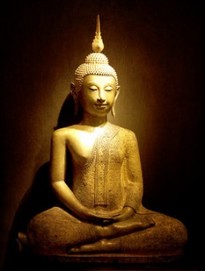 Sit/Love Sit/Love If we all have Buddha Nature, what’s the rush?
That’s a question I struggle with these days. What faster progress do I think I need to make? By now, shouldn’t I be more peaceful and less identified with the “causes and conditions” which make up the self I see in the mirror? My uncertainty still brings discomfort. Not knowing feels bad. And I could do with some assurance that it’s okay to be on the way, my way, at my pace.
At this point, I find myself to be a slow-learner, fumbling through written instructions, and unskillful being told what to do, even when I've agreed. I struggle to remember to what I have commited. It’s even an effort to schedule these commitments into the calendar on my smart phone. I’ve come face to face with the unpleasant truth that making and keeping whole-hearted commitments isn’t what I am good at.
Furthermore, I’m finding it hard to confess that I often don’t understand what I am being told. Perhaps, I strive for a “wise elder façade.” Sometimes I fantasize holding up my hand and asking a teacher: “Say it some other way so I will understand." Of course this is out of the question, until I decide to try it.
Even as I look at being a good practitioner, I see how important it is to set boundaries, to value my own beliefs and opinions, and to comfortably stand up for my values without getting defensive. I want something other than anger to empower me. Because knowing or telling my truth is hard, I often feel small or false.
Surely, I am not so different from many who end up facing a wall in a zendo. I, too, like those others, turned to the study and practice of Buddhism because of suffering. Often overwhelmed with emotional pain and frequently immobilized by trauma, I turned to gentle dharma talks and embraced the idea of treating myself with compassion.
So with all the positives of meditation irrefutable, I sit. And having heard it said that the self which result from causes and conditions – such as parents who suffered and could not give love – is not reality, I long to discover my Buddha nature, to embrace compassion, sympathetic joy, loving kindness and equanimity. And until someone wiser than I am tells me: “Alison, you can only do it your way” I will say so to myself and perhaps begin to end my suffering. Then I can work harder to end all suffering, the real work of this personal struggle. And because I have Buddha Nature, there is no rush.
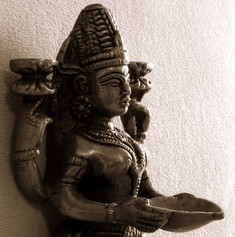 Generosity/rebecca Generosity/rebecca I was one of six women meditating at the Hartford Street Zen Center in the Castro. After tea and cookies, we talked about getting home. I drive a Scion IQ, just large enough for me and one passenger, so I couldn’t offer rides to anyone other than the teacher who lives a block from me. But I did hand bus fare to one of the women who had said she had no money to take Muni to her place in the Tenderloin. Rather than generously accepting two dollars from me, she dropped the money on the table next to the cookies, saying money wasn’t her thing.
She said she would just hop on the back of the bus through the back door and skip the fare. Righteous indignation instantly erased any loving kindness residue. Did my sangha sister not sense a disconnect between Buddhist meditation and a fare-free bus ride home? Did she prefer Muni generosity to mine? I was familiar enough with Buddhist precepts to know it isn’t okay to take what isn’t freely given. Sounds like that would include riding Muni without paying.
I was doubly annoyed at having my two-dollar gift rejected because Rev. Lien’s dharma talk had been about dana, the Pali word for generosity. I thought we had agreed that women, at least the six of us at the dharma talk,were more skillful at giving than we were at receiving. I saw this as a perfect opportunity for one woman to accept from another woman to make her life easier. It would cost both parties a mere two dollars. But seeing her slap the money on the table next to the cookies rather than pocket it, I sensed that gifting this woman with bus fare didn’t qualify as generosity. She had said she had issues with money. And real generosity means giving people things that are good for them, things they want. Ergo, the two-dollars to ride the bus was not generosity because it had not contributed to the wellbeing of a woman with money issues who would rather hop the back of a bus than carry a Clipper card or ante up two dollars, even if they weren’t her own.
Seeing that two dollars hadn’t enhanced my sangha sister’s wellbeing, I questioned my intentions. Had I been showing off? Was it my habit to throw money at problems? What information was I missing? Was I in the presence of poverty? Mental instability? Libertarian politics at work?
Rev. Lien’s dharma talk had stressed other generosity besides financial, such as gifts of time, attention, aid, encouragement, and emotional availability. Although feeling entirely in the right that people should pay their way on public transportation, I still wanted to commit an act of generosity that could not be refused, so I chose to offer a second gift, the gift of silence, rather than giving her a piece of my mind. My silence was a gift to myself as well because I was putting into practice a prayer from poet Theodore Roethke: “May my silences become more accurate.” It is possible that an accurate silence may be worth more than bus fare.
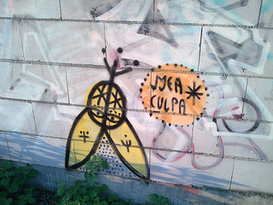 mea culpa /frischundsauber mea culpa /frischundsauber Weebly, thanks for hosting my website, “spiritflowsthru.com.” In October, 2011, my friend Kate taught me how to use you to share my insights online. Before starting a weekly blog posting, I was a worship associate at the San Francisco UU church where I enjoyed thinking, writing, and speaking my “truths” at the lectern.
Posting each week was a goal I set myself. Here I vowed to scour my soul and my immediate world, imagining a reader might find humor or inspiration or something of interest to take away or take to heart. Planning, thinking, and looking at the world with this intention to publish each week helped me pay attention.
Despite intending to come from my own life, I sometimes worried that nothing interesting had happened or I had no original insights in a particular week and rather than skip a week, I got help. It wasn’t “wrong” to rely for ideas on sources outside myself. It wasn’t “wrong” to quote a Rumi poem, even if it did fill space. On occasion I paraphrased bloggers and thinkers who carried intellectual weight, especially Tara Brach and Pema Chodron. There was never anything unethical about citing others as long as I made clear what was original and what needed to be cited. And luckily, Kate could read me with unerring accuracy. She helped me come out from behind another’s insights.
However, having now a sincere commitment to learning and living the Buddhist precepts about an ethical life, especially the first two precepts – cause no harm and don’t take what isn’t freely given – I have turned my attention to living an ethical blogging life. So dear Weebly, I admit that sometimes I have used your blank expanse to share a story that wasn’t freely given, and the slant I took in its retelling may have hurt the people in it.
A recent influence that has prompted this mea culpa, in addition to Buddhist precepts , is the eleventh episode of “Orange is the New Black” a series on Netflix. I was touched when I saw what happened because someone took what wasn’t freely given and caused harm. By the time I had gobbled up episodes one thru ten, I knew Piper had been in prison for a while, but I also knew that shortly after she entered prison to serve her 15-month sentence, she had shared with her fiancé anecdotes about some of the inmates in Litchfield Prison. However during episode 11, he retold them on NPR in an attempt to advance his career as a writer with something to say; his humorous disclosures hurt the feelings of the women in those stories. And by the eleventh episode, Piper had developed empathy for many of her sister inmates. Sadly, the pain her stories caused when they were retold could not be undone and that pain would have repercussions.
Her fiancé’s on-air retelling of Piper’s first reactions to her incarcerated sisters is hardly the series’ most gripping portrayal of the dehumanization these women faced in Litchfield Prison, mostly at the hands (and other parts) of the mainly male establishment. However, I did identify with Piper’s fiancé’s desire to get attention, to be perceived as interesting by sharing Piper’s prison anecdotes, to get attention and maybe published. I won’t say more about Piper and Litchfield Prison as that would be unfair.
So it is probably a wiser course to complete my confession about honesty and causing no harm with reference to the Buddhist precept of “not taking what’s not freely given.” I have been told that the ethical value of the precepts is less about being taken as commandments and more about being understood as an invitation to be mindful about how I go about in the world. As for thieving, I am not likely to go into Macy’s and try to come out with a pair of socks I didn’t pay for. I did that once and it was so easy, I turned around and put back the socks. But that was very long ago. More recently, in addition to sharing stories in my blog, I have talked about others who did not give me permission, always aware that in those instances people listened, and I liked being the center of attention.
In conclusion, dear Weebly and readers, I will continue to be aware of honest attribution, of being honest about my limited perspective and of causing no harm as I tell my “truth.” Perhaps someday when I write fiction, I will create characters who won’t mind being talked about as well as characters who do mind very much but find interesting methods of retribution. Meanwhile I will watch “Orange is the New Black” and continue here with you.
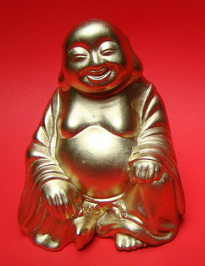 Gold Buddha /VasenkaPhotography Gold Buddha /VasenkaPhotography Awards for the “Best” of anything are not pro forma at the Zen Beginner’s Mind Temple (Hosshin-ji), also known as City Center. Had there been an award for Beginningest Mind given the Saturday that was my first all-day sit, it would have been mine.
Actually, the award was mine even before I left the house—from the moment I reached into my closet and grabbed a white, hooded windbreaker. Had I thought before I grabbed white, I would have remembered never having seen colors other than black, brown, navy blue or forest green – always some variation of a somber hue. In past visits to the Zen Center, I, too, kept a low color profile.
Outside my building at 5:10 a.m., I met my Zen practice teacher, Rev. Keiryu Liên Shutt, to walk to the Zen Center together, and she didn’t take notice. She could have been thinking: This may be Alison’s first “one-day sit” but it is not her first time meditating at Beginner’s Mind Temple. Surely she won’t wear white inside. More likely, Liên was eager to be on time to change into her own black robes.
By skipping the preceding night’s introduction to a one-day meditation session for beginners at City Center, I wasn’t informed about clothing, routines or even how to read the day’s schedule. While the references to time wouldn’t require clarification, those Sanskrit or Pali words that explain what to do and where to go would just be Sanskrit or Pali to me.
Knowing what to do when might have kept me from trailing after the kitchen staff heading upstairs from the hall outside the zendo where I sat. Late registrants sit in this entry hall. Meditating with my eyes open for the first time, I saw them leave. Not knowing who they were, what they knew that I didn’t, why they got up or where they were going, I followed. In the kitchen I stood barefooted in my white windbreaker. Eventually, one smiling staffer asked me what I was doing in the kitchen. At that moment I uttered what probably clinched the Beginningest Mind award for me. “I don’t know,” I said, sounding neither wistful nor shameful, but simply truthful. They asked me where I was supposed to be. Again, “I don’t know.”
Not knowing on this day of silence became an adventure in living with beginner’s mind, a low-level pervasive uncertainty. Many times before the day was over, I would rue my decision to skip the beginner’s orientation. Finally, to avoid uncertainty escalating into distress I importuned the man in the bookstore. Surely, he was not observing silence, and he might be willing to translate the day’s schedule for me. This he did, but not before reminding me that talking was not permitted and though he was talking, I must not. Thus when we came to the posted schedule, I pointed and he whispered.
Later in the afternoon, I was helpless to silence my bubbling laughter while scrubbing mirrors, sinks, and tubs in the second-floor women’s restroom—the work detail to which I was assigned. I delighted in the irony of it as I mopped the floor and pulled matted hair from the sponge mop. The young resident in charge was willing to hear the why of my laughing. Yesterday, two women cleaned my own small condo because I don’t like housework. Of course they were paid. And wasn’t it funny in a wonderful way that here I was the next day cleaning up after others as part of a day of meditation for which I had paid. “Every activity is part of the practice,” she whispered in response.
And only once during the day did my Zen practice teacher, Liên, feel compelled to whisper instructions to be sure I didn’t muck up an activity of great formality on my way to winning the Beginningest Mind award. She told me to stay behind one of her experienced friends and do whatever she did.
Unfortunately, before going upstairs to procession into the Buddha Hall behind my guide among all the black robed sitters, I grabbed my white windbreaker, rolled it as small as I could and stuffed it under my left arm. There it stayed through the ceremony presided over by Central Abbot Myogen Steve Stücky. Each time I prostrated myself among the others, I flopped sideways, gripping its whiteness to my side. Twice I felt my feet touch the head of the woman behind me as I wriggled awkwardly to standing, the jacket clutched beneath my arm. Even when it was my turn to ask the Central Abbot a heartfelt question about my meditation practice, I stood before him with the crumpled white windbreaker under my arm to ask him, “Where is wrong?”
Every misstep, timing error, or misunderstanding has not been recounted here. And in spite of these and other miscalculations, I felt great gladness. I had maintained my equanimity, sat still on my chair facing the white wall each meditation period and understood most of an esoteric dharma talk. Moreover, I felt genuine kindness toward my blundering. All in all, it was a very good day; not only was I a frontrunner for the Beginningest Mind trophy, but also a contender for the “Mighty Kindness to the Self” award.
 Hair Color on September 6, 2108 / Alison R. My hair has been my crowning glory, and my stylist would be the first to say so.
I came to San Francisco from Southern California and met my son and daughter-in-law’s hairdresser, Romy. Since that time I have applauded all the variations she created from July 1999 until December 2012. Only briefly, five years ago when baby Erin was born, did I go a day or two with a poppy-colored head of hair.
The joke in the hospital room when my son saw me was that if the baby went missing at the same time I left, they would send out an amber alert and I would be pulled over in a minute. Romy recognized that this was a dye job that hadn’t succeeded and scheduled a re-dye within the week. That was her only misstep in all the years she ruled my hair.
Romy’s control had been pretty absolute since we first met and she declared me drab. Mine was a history of deferring when it came to hair. Ours was a willing partnership. She did what she thought was beautiful and I agreed. While those days are over, I am ashamed to say I acted the coward one more time and didn’t tell Romy directly that I grew out the color and let another stylist cut it off. When she called me to say she missed me, I called her back and left a message. I said I had been afraid to disappoint her by going natural and that I feared she might have tried to talk me out of it. I regret not saying what I really felt.
Deciding to be less hidden beneath clever colors and artful streaking has taken years. It has only been within the last several that I accepted my aging with greater affection. I want to honor the crone I have become. This crone wants to spend less time and money on her hair and more on meditating. I want to trust my own instincts and follow my passions.
Jean Shinoda Bolen in Crones Don’t Whine says, “A crone is a juicy older woman with zest, passions, and soul.” If you aspire to be one, the secret is to be yourself while your mind, heart and body still function well enough and you appreciate being alive.
Bolen writes: “Crones don’t whine; they’re juicy and they trust their own instincts. Crones are fierce about what matters to them. They speak the truth with compassion. They listen to their bodies, reinvent themselves, and savor the good in their lives.”
She doesn’t say that crones don’t dye their hair or wear make-up or have facelifts if they think improving their appearance would make them happier or more themselves. However, I’m of the less-is-more frame of mind. The less I see myself facing the job of aging gracefully and graciously, the more I put off embracing this crone stage of my life.
I come by my vanity honestly. My hair has always been my “crowning glory.” From my earliest years when my mother took me to beauty shops to the time I first changed hair color in my mid-thirties, hair has helped to represent the “self” I want to see in the mirror and the “self” I want to present to the world.
For now, I see a woman in transition, willing to be more who she is. I like the mouse color I see in the mirror. I still rumple my hair and apply what Romy calls “product” to achieve a jaunty look. This new look reflects the energy and creativity that have brought me this far into cronedom.
 Clock / David Stokes I enter a period of inner peace Sunday afternoon. It lasts until Monday at about 2:16 p.m. when I know for a fact my 28-year old grandson will not be back from surfing at 2:00. My car will not be in the garage ready for me to make my 3:00 appointment that requires me to leave here by 2:40.
Just before exiting he says to me, “Grandma, I’ll be back at two.” I think such a good grandson, so responsible. What a blessing. But then I make the mistake of reminding him that I don’t really leave until 2:40 to be where I need to be by 3:00. Oops, one too many numbers.
Could be he drives away in a number-muddle soon to be compounded by the waves at Pacifica and a stop-off for a burger in Daly City.
Meanwhile, reassured that I am cared for, I go about my morning chores capped off by a long and lovely meditation, which ends at 1:58, just in time for the door to open and my grandson to haul his surfboard and wetsuit through the living room out to the patio. And when that doesn’t happen, whatever equanimity I had just experienced disappears
Emotionally, it’s downhill from about 2:15. I message him. Then call. When the answer machine picks up, fear takes over. He is such a good boy he must have drowned. Otherwise he would be here. Whom shall I call? His father is in the Philippines. Another son is in Connecticut. The third is dealing with his own issues and should not be alarmed at this time. Besides he is four hours away. I don’t know where to tell the Coast Guard to search. My grandson has my car. I can’t look for him.
I continue to message him. Fear has switched me into ungrandmotherly language. I text my 3 o’clock and say I will be late or not at all. She says she will wait for me 30 minutes. Then she admonishes me not to be angry. She means well but this is not good advice and giving it is inadvisable as well. But to her I speak no evil.
Then I launch “the second arrow.” That’s the additional suffering we are said to direct at ourselves for experiencing the first pain. Blame and shame. Raging like this must be a personal shortcoming. What good is meditation? I have no equanimity. No better off than before. Anger, fear and self-loathing. Clearly, I am a meditation failure and so on.
Then my grandson calls. He is cruising. I can hear his rap radio station on my car radio. I scream. I curse. I scare him. He thinks maybe this is a wrong number. I remind him that he promised to return at two and it is an hour and a half past that avowed hour. He is practically weeping. I hang up on him. He calls back. I say don’t call, just drive. He calls. I say don’t call, just drive. Now he is apologizing. But I say what good is that. I am inconvenienced and angry.
Eventually, he drives up and I am outside, unable and unwilling to speak. I jump into the car, adjust the seat from reclining, grab my cushion, which is wet from a drippy surfboard. I drive away leaving him in front of the building.
That night when I get home on BART from studying the Dhammapada at the East Bay Meditation Center in Oakland, my grandson is not on the couch in front of the TV. I see his electronic equipment and suitcases still in the living room. This is a good sign. I go down to the garage and check for the car. It’s there where I left it when I got back from my afternoon appointment. He texts me he is at a friend’s house. By the time he gets back, I am in bed. Our apologies and explanations will have to wait until morning.
We make an early morning run to Starbucks. I listen. He talks. I talk; he listens. All is well. Well enough for him to borrow the car to surf again Tuesday. I say, please be back by 5 o’clock. I hold up my right hand and ask him to count the fingers. He says five. I ask him how many toes on my right foot. He says six.
I am reassured we understand each other. He survives to surf another day; I to meditate. Though waves break over us, may we float in the greater ocean.
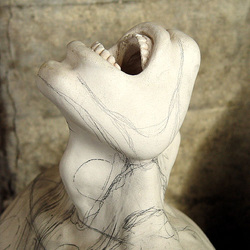 doublemouth/zen My life goes better when I’m centered, not self-centered. Self-centered behavior is what I do to avoid the ultimate dread of what Emily Dickenson describes as “… a pain – so utter – It swallows substance up….” A self-centered visit to a dentist would have me fretful, in need of reassurance, viewing inattention as a personal affront, and fearful that the pain may not “swallow substance up” but will hurt a lot.
Lucky for me, I feel fully centered the day I show up for oral surgery after my regular dentist said I was in dire need of having a tooth removed or risking (and then she listed risks beyond measure and showed me a blurry but apparently ominous tooth picture.) But she definitely felt strongly, having prescribed immediate and high doses of antibiotics after my early morning distress call. I am this centered self because I have told myself no stories about oral surgery procedures or their aftermath, and with no story to scare me, I am peaceful and equanimous.
I arrive at the oral surgeon’s office for the removal of an offending number three tooth in the upper right quadrant. What ensues could have been a disaster rather than a routine bout of oral surgery were I not my centered self.
Dental emergencies, such as mine, rely on clear communication between the secretary in one dental office and the secretary in the second office; of course each is multitasking as the message is passed. Thus when I finally see the oral surgeon, he thinks that he is scheduled for a consultation during which he will convince me that after I have the tooth removed sometime in the future, I will want to have an implant also sometime in the future and in the meanwhile watch this movie and he’ll be back.
“No,” I intervene. “My dentist said this tooth has to come out now. I’m parked around the corner in a two-hour spot, so it has to be now. He looks again at the x-ray I have included with her referral. “But I have you scheduled for a consultation.” I shake my head. “Take it out now, please.”
He looks at his watch. I can hear the congestion in the waiting room, all those adolescent wisdom teeth, impacted or not, waiting until the end of summer to be removed.
He accedes to my request for immediate surgery. “Gotcha, honey,” he says rumpling my hair.
Needless to say, I don’t like being called “honey” or having my hair tousled, even playfully. But as a centered self, I can pause before automatically mounting a soapbox and chastising him for what feels like ageism and sexism. Instead I can reconnect with the fact that this is the man who will be sticking needles in my gums, wrenching out a tooth, suctioning out poison and staunching the flow of blood. I choose to stay silent and spacious.
Then an assistant escorts me to a more serious looking room. Noisily, she tears into a bag of useful implements, and they crash out onto the metal tray next to my ear. I arch up from where I have been contemplating tree branches, and touching her arm gently, say “Please, your energy is making me nervous.” She apologizes. The doctor explains that she is upset that all the other patients are forced to wait even longer. They both reassure me I should take none of the discord personally. I smile and cower slightly to show I mean no harm. After all, she is in charge of suction and gauze; much of my comfort and well-being will depend on her equanimity.
The Novocain injected, the numbing in full effect, the oral surgeon explains the pressure I will now feel and the cracking sound. Not to worry about the rush of blood. It happens as he predicts. Happily reassured, I sit up too quickly and the assistant just catches that rush of blood. Back down I lie, and shortly the procedure ends.
Numbed and stuffed with gauze, I am led to the business office for a debriefing about the benefits of implants from bone grafts to abutments. On a post-it pad I answer questions, nod and smile as best I can while the assistant checks off pricing, possible insurance coverage and time frame.
Gratitude, gratitude. It is over. No more generalized weariness, low grade fever, pain and swollen gums. I have meditation to thank for my showing up for oral surgery a centered self, comfortable not knowing what was ahead, and thus not hurting myself with anticipated pain.
|
 Constriction at Green Gulch Farm / Jed Sullivan
Constriction at Green Gulch Farm / Jed Sullivan 








 RSS Feed
RSS Feed